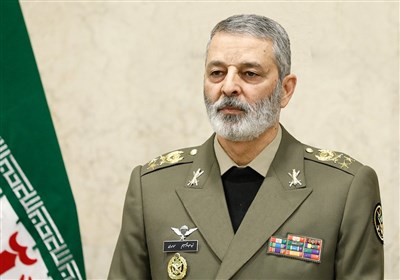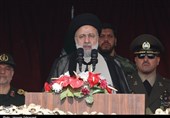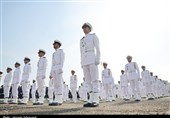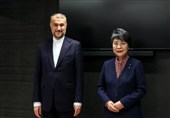Mutual Visa Services' Suspension Just Episode in Long-Standing US-Turkey Row
TEHRAN (Tasnim) - The recent mutual non-immigrant visa services suspension attracted attention to the strained bilateral relations between Turkey and the US, however, the roots of existing tensions are deeper, according to the experts.
The suspension of non-immigrant visa services between Turkey and the United States is just the latest episode in the long-standing quarrel between the two countries, provoked by Washington's support of Syrian Kurds and its unwillingness to extradite Islamic cleric Fethullah Gulen, considered by Ankara to be behind the 2016 failed coup attempt, experts told Sputnik.
On Sunday, the US embassy in Ankara announced the suspension of non-immigrant visa services at the US diplomatic facilities in Turkey following the recent arrest of Metin Topuz, an employee of the US Consulate General in Istanbul, on October 4 over his alleged links to the Gulen movement, referred by Ankara as the Fethullah Terrorist Organization (FETO).
According to Turkish media, Topuz is accused of undermining constitutional order, espionage and an attempt to overthrow the country's government.
In response to Washington's move, Turkish authorities suspended US visa applications on Monday.
The US-Turkey relations have been strained for a long time by different issues and the recent suspension of non-immigrant visa services between the two countries is just one more episode in the ongoing tension. However, the way forward will now depend on the specific decisions made in both Washington and Ankara.
"I am witnessing such a situation for the first time, as no country has previously made such a harsh decision on visas. In order to prevent this situation from hurting ordinary citizens even more, this issue should be resolved as soon as possible through a high-level Turkish-US dialogue," former Turkish Ambassador to Washington Faruk Logoglu said, adding that problems in bilateral relations have been observed for some time and the visa crisis is just one more irritant.
Turkish political scientist Mehmet Yegin agrees that Turkey-US relations have been strained since the presidency of Barack Obama and have not improved since Donald Trump assumed the office, despite positive expectations.
"The idea that [former US presidential candidate] 'Hillary Clinton has links to FETO' was widespread in Turkish public opinion, that is why 'it is in Turkey's interests to develop good relations with Trump.' But nobody wondered who is in Trump's team and what their approaches to key geopolitical issues are. In this regard behind-the-scene crises emerged after Trump came to power, however, both leader’s demonstrated friendly attitude and sincerity of intentions during their meetings," Yegin said.
According to Logoglu, Turkey has failed to achieve its goals in relations with the new US administration.
"This is about the situation in Syria and Kurdish self-defense forces, as well as about court proceedings and the demand to extradite Gulen," the ex-ambassador stressed.
Both experts believe that both the recent development in the Turkey-US relations, nor the strained Turkey-Germany relations will have an impact on the relations between Ankara and NATO, and media speculations on the possible closure of the Incirlik base for US troops are unlikely to become reality.
"Whenever a difficult situation occurs, everybody immediately starts to think about Incirlik. I do not think that in this situation the base in Incirlik will be closed. These two situations are not connected. The visa step taken by the United States is a mistake and I think that Turkey will not make a mistake in response to such actions of the United States, thereby further exacerbating the situation… Whatever media says, I believe the government will not follow this path," Logoglu said.
Yegin, on his part, considers it irrational to draw parallels between Ankara's bilateral relations with a state and with the military alliance.
"The Turkish-US relations or Turkish-German relations are not directly connected to the relations between Turkey and NATO, it is necessary to separate these areas of interaction. Thus, it does not seem reasonable to me to argue that the current crisis will affect the relations between Turkey and NATO, this is an irrational approach," Yegin said.
At the same time, the expert assumed that the United States and those European states, which have strained relations with Turkey, may unite their efforts against Ankara on a number of issues.






